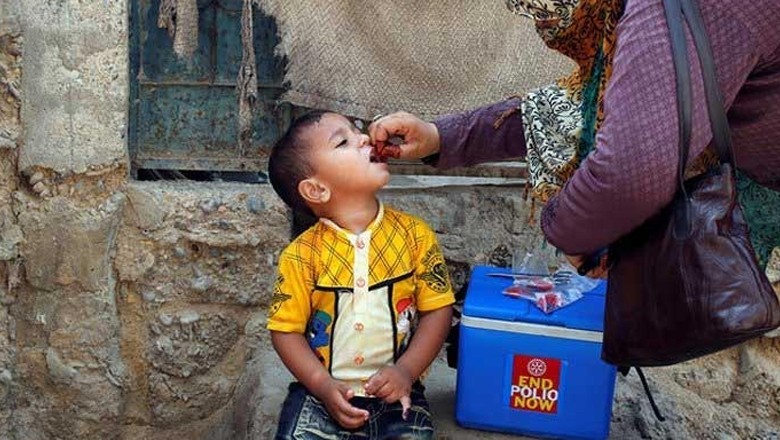Poliovirus
KARACHI/ISLAMABAD: The National Emergency Operations Center (EOC) reported on Saturday that two new cases of wild poliovirus have been detected in Pakistan, pushing the total number of cases nationwide to 45.
The new cases were found in a girl from Lakki Marwat and a boy from Dera Ismail Khan, further highlighting the persistent threat of polio in certain regions of the country.
According to the Regional Reference Laboratory for Polio Eradication at the National Institute of Health (NIH), both new cases are confirmed to be of type 1 wild poliovirus (WPV1).
This brings the total number of cases in these districts to two each for the year, where environmental samples had already tested positive for WPV1. These findings point to an ongoing high risk of virus transmission in these regions, particularly in areas where vaccination coverage remains incomplete.
Health authorities have initiated efforts to trace the virus transmission patterns by conducting genetic sequencing of the samples collected from the infected children. This analysis will help in understanding how the virus is spreading and assist in controlling further outbreaks.
So far in 2024, 45 cases of wild poliovirus have been reported across Pakistan. The majority, 22 cases, were detected in Balochistan, while 12 were reported in Sindh, 9 in Khyber Pakhtunkhwa, and one each in Punjab and Islamabad.
In response to the growing number of cases, a nationwide polio vaccination campaign is currently underway, aimed at vaccinating over 45 million children under the age of five.
The campaign, which began in October, is set to continue until November 3. Health officials have stressed the critical importance of full participation in the vaccination efforts to ensure that no child is left unprotected.
Pakistan remains one of only two countries in the world where wild poliovirus has not been eradicated, making this campaign even more urgent.
Officials are calling on parents to ensure their children are vaccinated, as incomplete coverage leaves communities vulnerable to further outbreaks of the disease.
Challenges such as vaccine refusals, population movements, and difficulty in reaching remote areas have hindered progress, allowing the virus to persist in some regions.
Since the launch of Pakistan’s polio eradication programme in 1994, significant progress has been made in controlling the virus. However, recent genetic analyses show that WPV1 is still circulating in areas that were previously believed to be under control.
Health officials are focusing on eliminating these remaining strongholds through continued vaccination campaigns and increased public cooperation.
The persistence of the virus in certain regions emphasizes the need for comprehensive vaccination efforts, as only through collective action can Pakistan hope to finally eradicate polio and prevent its resurgence.
I am a dynamic professional, specializing in Peace and Conflict Studies, Conflict Management and Resolution, and International Relations. My expertise is particularly focused on South Asian Conflicts and the intricacies of the Indian Ocean and Asia Pacific Politics. With my skills as a Content Writer, I serve as a bridge between academia and the public, translating complex global issues into accessible narratives. My passion for fostering understanding and cooperation on the national and international stage drives me to make meaningful contributions to peace and global discourse.










